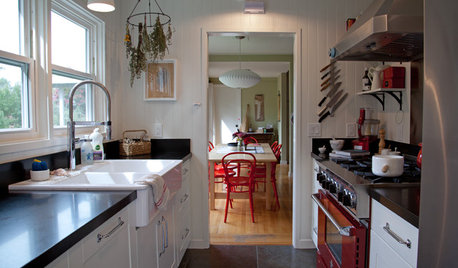What is APR
carmen_grower_2007
15 years ago
Related Stories

PRODUCT PICKSGuest Picks: Hit the Slopes!
Take a cue from lodges and chalets and style your home for apres-ski enjoyment
Full Story
HOUZZ TOURSHouzz Tour: Modern Gothic Pool House
Feast Your Eyes on Unexpected Textures and a Wine Cellar that Wows
Full Story
LIFEGet Through the Winter With an Après-Ski Attitude
Try these 10 easy ways to bring the pleasures of a ski vacation home
Full Story
COLORBest Uses for the Boho Blue Color of 2015
PPG Pittsburgh Paints’ Color of the Year is a bold bohemian blue best used in small doses
Full Story
HOUSEKEEPINGTackle Big Messes Better With a Sparkling-Clean Dishwasher
You might think it’s self-cleaning, but your dishwasher needs regular upkeep to keep it working hard for you
Full Story
DECORATING GUIDESOur 15 Favorite Royal Wedding Souvenirs
Deck Your Home With Crowns, Corgis and "It Should Have Been Me"
Full Story
MOST POPULAREasy Green: 23 Ways to Reduce Waste at Home
Pick from this plethora of earth-friendly ideas to send less to the landfill and keep more money in your pocket
Full Story
MATERIALSShape Up Your Surfaces With New Tile Textures and Forms
Take your walls and floors to a different dimension with innovative sculptural tiles, as shown at the 2013 Coverings expo
Full Story
KITCHEN DESIGNKitchen of the Week: A Galley Kitchen in Wine Country
Smart reorganizing, budget-friendly materials and one splurge give a food-loving California family more space, storage and efficiency
Full Story








pamghatten
dave_donhoff
Related Professionals
South Elgin Architects & Building Designers · Wauconda Architects & Building Designers · Ronkonkoma Architects & Building Designers · Murraysville General Contractors · Dunkirk General Contractors · El Monte General Contractors · Fitchburg General Contractors · Jackson General Contractors · Rancho Cordova General Contractors · Signal Hill General Contractors · Hialeah Home Stagers · Round Lake Home Stagers · Immokalee Home Stagers · Union City Home Stagers · Lomita Interior Designers & Decoratorscarmen_grower_2007Original Author
dave_donhoff
carmen_grower_2007Original Author
dave_donhoff